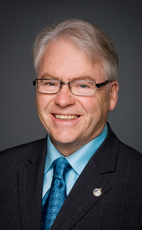THUNDER BAY – Leaders Ledger – Before this year’s omnibus budget was passed, Conservative Member of Parliament David Wilks discussed it with his constituents. They were upset with many of the clauses, and Wilks explained that, even though he agreed with many of their concerns, it was impossible for him to vote against the bill. The government had whipped the vote on Bill C-38, because it was a matter of confidence– meaning if it didn’t pass, the government would fall.
Confidence votes deal with major government priorities. But, as many Canadians have noticed by now, the Harper Government has been pushing through more and more unrelated measures in the name of “economic growth”. While budgets are typically matters of confidence, many of us are still struggling to figure out how exactly gutting the Fisheries Act and slashing the budget of the Canadian Food Inspection Agency relates to Canada’s economic health. Cramming so many wide-ranging changes into one huge bill (they are named omnibus bills) as they did with their so-called “tough on crime” bill – makes everything a vote of confidence.
This tactic poses a number of problems. Though many Conservative MPs, Wilks included, said they did not support some of the changes in C-38, they still voted for the bill to avoid triggering an election. The government forced them to vote against their conscience, and against their constituents. But Canadians expect better of their elected representatives.
During their minority rule, the Conservatives abused the principle of confidence a number of times. The government passed the fixed election date law in 2007 to set elections once every four years. Harper said this would improve accountability and prevent minority governing parties from calling an election any time they were up in the polls. Fair enough. Constitutional scholars pointed out that the Prime Minister could still ask the Governor General to dissolve Parliament and call an election at any time. And sure enough, Harper called an election barely a year later – because his party was doing well in the polls.
It’s become clear that the fixed election date law isn’t worth the paper it’s written on, especially if the government of the day insists on abusing the principle of confidence. The British Parliament was well aware of this fact when they passed their Fixed-Term Parliaments Act in 2011. Under this law, elections are held every five years, unless the House specifically passes a resolution declaring a lack of confidence in the government. In the UK, it is up to Parliament as a whole, not only the Prime Minister, to call an early election. While I support fixed election dates, that should occur ONLY AFTER we achieve a proportional representation electoral system.
This distinction makes a fixed election date law much more effective. Concentration of power in the hands of the Prime Minister has become a major problem in Canadian politics, and a change like this would put decision-making power back in the hands of all representatives. It would foster a more cooperative Parliament, encouraging parties to work together, rather than and spending millions to send Canadians to the polls every time they think they have a better shot at winning.
Right now, our fixed election date law is useless. The government abused the legislation the first chance it got, and there is no indication this or future governments will respect our fixed election dates anymore. In effect, little has changed. The reality is that under our current system, Canadian voters are still used as pawns by political parties. We must change the principles of confidence to require that the entire Parliament expressly vote to dissolve government, so as to avoid abuse of the system. This change could improve our democracy, and keep Parliament working for Canadians the way it should be.
Bruce Hyer MP
Thunder Bay Superior North

